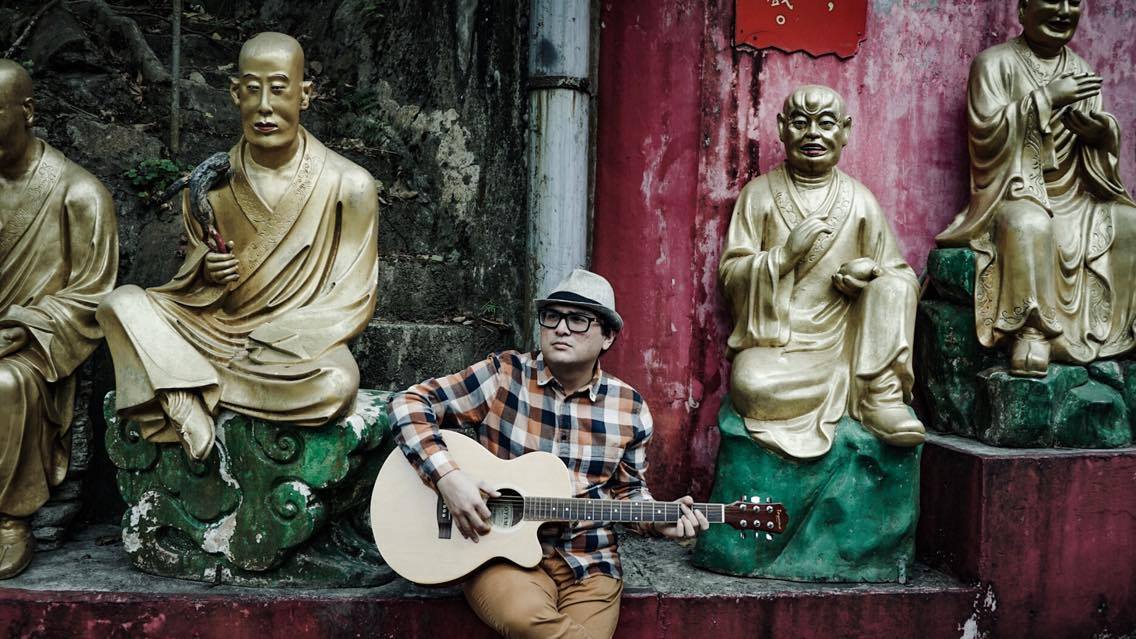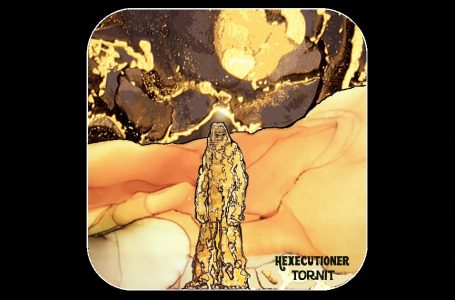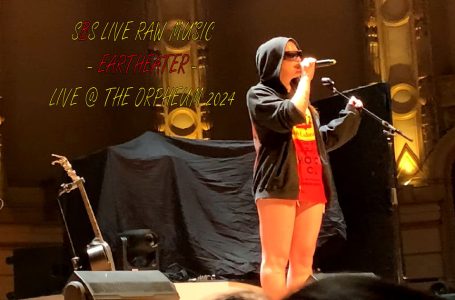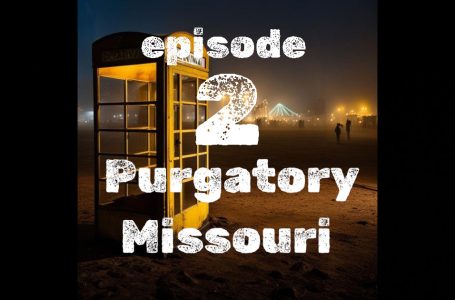William Elvin

A sincere, warm-welcome back to William Elvin of William Elvin And The Circus Tour to our pages once again for another interview! I had an absolutely amazing time talking with him about the expansion & evolution of his music over time and what’s currently inspiring him along his adventures.
Now…I know he’s a thoughtful writer and I’ve already talked with him once before in 2015 – so I’d be lying if I said I wasn’t expecting something great to come in response to some of these questions…BUT…I have to say – a lot of what he says below was beyond-expectations in every way. Many of these answers are loaded with the details of what it’s like to assemble a new project, play with new players and get a whole bunch of songs together for a brand-new album…and believe me, for those that don’t already know what that’s like…you’ll be surprised at just how much needs to happen for it all to take shape!
And though I tried my best to steer clear of politics as long as I could…I had a sneaking suspicion that William Elvin was the exact person to ask about music and its relationship with the world in tumultuous times…and I’d be doing a disservice to you all were I not to mention right off the bat here just how incredibly insightful and accurate his answer is when it gets brought up.
Point being – he’s got incredible things to say here. I don’t want to give too much away…but we’ve started clearing out a room here in Canada just in the off-chance that he’s needing a place to stay soon…you’ll understand what I mean soon enough. Read on & enjoy friends!
- Jer @ SBS
Interview with William Elvin And The Circus Tour
SBS: William – always great to have you with us my friend! It’s been a while since we talked with you last in 2015 – so let’s pick up the story from there…from what I’ve read and heard from you lately, you’re making moves again with your music and adding new dimensions to what you do – tell us about what’s changed with your music and what’s coming up for ya!
William: I spent the last year or so testing my songs in front of new faces here in Hong Kong. It wasn’t easy moving here from Manila and starting from scratch again with my music, so I had to feel what it’s like performing my originals in front of audiences here and see how they react. I’m quite happy to have received good feedback, and I’m lucky to have made a few friends along the way who offered their help in creating my music, and put their trust in my creative vision. So now, we’re working on a new record to be released here in Hong Kong this November.
SBS: So…you’re playing with new players all based-out of Hong Kong – how did you find them and how did you know they’d be the right fit for what you’re looking to create in the music of William Elvin And The Circus Tour?
William: It started when Saturn Tiamson, an excellent and multi-awarded drummer who is very active in the Filipino community here, offered to play the drums for my musical project. He then introduced me to a young guitarist named Matt Mateo, who then introduced me to Rico Cristobal Jr. who played bass for a band called Gracenote in the Philippines so I’m quite familiar with his work. I value the hodgepodge of influences in the group, and it allows the songs to have certain elements that surprise me because I never would have thought of those alone. We also have two guest musicians who’ll be contributing to the recording: Lloyd Yamid – who’s one of the best drummers I’ve ever heard – and from Manila, Dana Marquez on keys.
SBS: Let us know a bit about the individual players in the band and what they bring to the music. Are they actively contributing to the writing/permanent-players – or is this more like a one-album project
William: We treat the songs like a creative sandbox, where we would play around with creative ideas that we can work with. Rico and I, who’d be working as the record’s producers, would then decide on the final elements that would go in the songs. That’s our process. It’s a creatively stimulating one. William Elvin and the Circus Tour is going to be an umbrella name for my music works, and certainly I’ll always have this group of musicians as my go-to collaborators.
SBS: As far as your own writing is concerned…you tend to write songs that are quite introspective, emotional and personal – did that create any challenges for you to open-up and share these songs with new members? In general – how did you adapt to a full-band situation; did it immediately make sense to pursue this new chapter in your music, or did it take some additional effort to make it all work?
William: In the Philippines, I had a band which we named ‘Happy Days Ahead’, and some of the material I play in my gigs here to fill up sets are songs from that project. So, I really didn’t make that much of an adjustment in playing with a band. That also answers your question if I felt like it was a challenge to open up the songs to band members. I guess my collaborators begin to understand along the way, while we’re working, how my songwriting is. Of course the major adjustment I had to go through was playing with an entirely new group of people at first. Also, we welcome other musicians to play with us in some gigs (like Rico’s brother Dan, and our friend Charity Battad). In regards to the songwriting and how it affects a full-band dynamic, the right approach is to think that the arrangement’s goal is to tell the story of the songs further. That makes everyone realize that not every song needs to have a flashy guitar solo, a groovy bassline, and impressive drum rolls. In our case, it’s always the song that has to shine.
SBS: You’ve got a diverse & versatile history yourself…so I’d imagine that adapting to a new environment might always present new challenges of course, but I’m sure it’s also incredibly rewarding. Take us back in your own history a bit…you have experience composing stage-musicals as well? Am I reading this right? I mean…don’t get me wrong, it makes sense – but I can understand there’d be a potential for that to have a completely different approach and its own set of challenges too. Tell us about your experience with stage-musicals and how your music was able to add to what was happening in the show…you know what I mean? Like if you were to imagine these scenes with no music…which I suppose at one point they would have had to existed that way…what did the music you composed help bring to the productions you were a part of?
William: In writing theater musicals, there are a lot more elements to consider since theater is a big collaborative art. First, if you’re working with a librettist or lyricist other than yourself, you should always make sure that you’re in the same page in terms of the scene’s intentions, how characters would sound like when they sing, etc. When the pages and the music go to the show’s director, you again have to consider his vision, how certain scenes will be staged, how he or she interprets character and scenes. You also have to work with choreographers, who may have suggestions on how production numbers can be embellished. But basically, the purpose of the songs in a musical is to push the narrative forward. From scene 1 to scene 2, how would you musically paint the picture of how the situations progress? That’s the basic question I always answer when writing music per scene.
SBS: Are stage-musicals still something you’re actively pursuing as well or is that in the past now? How was it similar/different to what you do now as William Elvin And The Circus Tour and how might your experience composing stage-musicals help the music in recordings and upcoming live-shows?
William: In my personal music work, of course, the creative process is much more fluid, as the songs I write exist in worlds of their own. You don’t need to consider any other factor than how the song would stand and how the message would come across. In terms of performing live, it’s my training as a stage actor that really gets into the equation, as I tend to always look for that immediate rapport between myself and the live audience. But writing for the theater gave me a philosophy that I always apply to whatever work I do, and that is to never put anything that doesn’t have a reason to be there. That goes into the songwriting, where I do my best to make every word contribute to a mood or emotion I’m trying to evoke. Also, in arranging songs, that philosophy also makes me consider every musical element that I want to have. And yes, I am still writing theater musicals. A musical of mine entitled “Mula sa Buwan” (“From the Moon” ), a Filipino adaptation of the French classic Cyrano de Bergarac, just concluded its run last month, and we’re happy with the overwhelming positive response it got. Also, I may visit you in Canada soon because I’m currently working on a new musical with a Filipino playwright there.
SBS: Through the lyrical details of singles like “But I Love No One But You” and the most-recent “10/23” – you write reflectively and openly about love, heartbreak, hope and relationships. Ultimately – are you sending a message to any specific one person? Like is there someone in particular out there you truly hopes hears these songs and the messages you’re putting out there – or is it all more universal than that? I understand that through the writing, listeners will always be able to connect to material and get their own relation to the words…but for you personally…how much of William Elvin’s own actual story are being put into these songs vs. fiction?
William: Not all of my songs are personal, though I try to make it feel like it is by imagining myself in the shoes of the persona I’m creating for the song. You may find this a bit strange, but the song “But I Love No One But You” is actually inspired by an interesting historical account on Philippine national hero Jose Rizal and his star-crossed love affair with a woman by the name of Leonor Rivera. Anyone can look the story up on Google should it pique their interest. Also, I release love songs as singles because it’s a theme that can immediately understood by my listeners. When they listen to my albums, they should find more complex themes that will be more challenging intellectually and philosophically.
SBS: Now…as far as I know, both the singles I’ve mentioned were recorded by yourself as a solo-artist. Do you have any plans for “But I Love No One But You” or “10/23” to appear within the lineup of the new album you’re working on for November 2017? Full-band versions of these songs might make for a neat bonus-edition of the record if it’s not already planned…just sayin’! Tell us about the upcoming record and the songs that you’re recording…what’s the direction and focus of the album like?
William: I believe those singles work as they are, and any addition in terms of arrangement are unnecessary. I’m going for an indie folk feel for this upcoming record. I want it to be a minimalist, grounded record. Everything has to sound like they’re being performed right in front of you, the listener, with me telling the stories to you personally. You’ll realize what I mean in November when the record is released.
SBS: Wait a minute here…William…it says November man! Why you making us wait so long? Just kidding of course – I understand that quality songwriting takes time. But for those out there that maybe don’t have the experience of making a record themselves or know what goes into it…walk them through it a little. You’ve now made a commitment to get the record out by November – so what has to happen in between now and then to ensure that it happens? From writing to recording, jamming, ordering merch, printing tickets or whatever all has to happen, how does it all fit in between your schedule in between now and November and what’s the plan to get it all done on time?
William: This month the band and I will test the songs in front of live audiences, just to get a bit of feedback. We also start recording this month, and will have sessions until the end of April. Then I’ll have the record mastered in the Philippines in the following months. Of course, we have to let the world know that there will be a record coming up, so we have to shoot a music video for the single too. Hopefully, we’ll get some exposure in Hong Kong media to maximize exposure. Then by September we’ll book some listening parties and live shows building up to the CD’s release.
SBS: Thematically-speaking…what can we as listeners expect to find in the content of the songs on the upcoming album? Did you feel like there was something specific you wanted to express with this particular project and assembly of musicians or did the songs get written more organically between you all? Are the cohesive threads between each song driving an overall concept to the album or do you feel like they’re more individual expressions that stand alone?
William: The upcoming record will be a 7-song collection entitled “In the Name of the Sacred, the Profane, and the Mundane”. Looking at my choice of songs, I find that thematically, the album is about how human relationships figure amid the world’s ever-increasing chaos and craziness. In many ways, I feel like the record is a deeper, more specific, exploration of the theme of “10/23” – How does love survive in a world that is building more walls to reject it?
SBS: From our North American perspective here in peaceful Canada…it’s still impossible for us to not acknowledge the chaotic year it’s been politically across the globe. Does any of the current political disruption factor into your music in any way, shape or form – or are you in that rare percentage of people that can completely separate themselves from it when it comes to putting yourself in a creative space that can be apart from anything else going on in the world? Musically…thematically…what does the world NEED right now William? What role should musicians play in a time like this?
William: I believe that artists cannot completely separate themselves from society’s affairs. I admire artists who make sure that their works serve as commentary to their time’s zeitgeist. See, if you write mundane, inane, and unsubstantial songs that only serve as distractions, then you’re influencing your listeners to become apathetic in the long run, and you somehow contribute to the dumbing down of society. That makes you responsible even if you don’t want to. It doesn’t need to be a Rage Against The Machine-type of political relevance, but we all should be part of the global conversation. Our job as artists are to create pieces that would at least make our audience look outside the windows of their comfortable rooms and see life’s realities.
SBS: You’ve been with us before and made it to the end previously William, so you know all about how we work and what we do here at the end of these interviews…usually! Let’s shake this one up a bit and ask you for two things…let’s go with the usual opportunity to say anything you like in our ‘open floor’ – but also, leave us with a current Top-5 list of songs that are currently inspiring you personally from out there in the music-scene & let us know a bit about what you’ve been listening to lately yourself!
William: At the top of my list is a song called “Impossible” by Lyla Foy. I discovered this song via BoJack Horseman on Netflix, which has now become the most life-changing show I’ve ever watched. Second is Damon Albarn’s “Lonely Press Play”. Third is “Olivia” by a Filipino band called The Oktaves. Fourth would be Iron & Wine’s “The Trapeze Singer”. And last but not the least, the song “Try, Try, Try” by The Smashing Pumpkins is haunting me again. And now that the floor is open, I just want to invite our readers to check out my music. There is lots of music content to be experienced online, so I hope more people would be listening. You’ll hear from me again when my next record comes out on November, and until then, I want to remind everyone that to love is human. Always love, no matter how the rest of the world seems to dismiss it nowadays.
We’ve got questions, you’ve got answers – be our next interview guest at sleepingbagstudios by clicking here!






